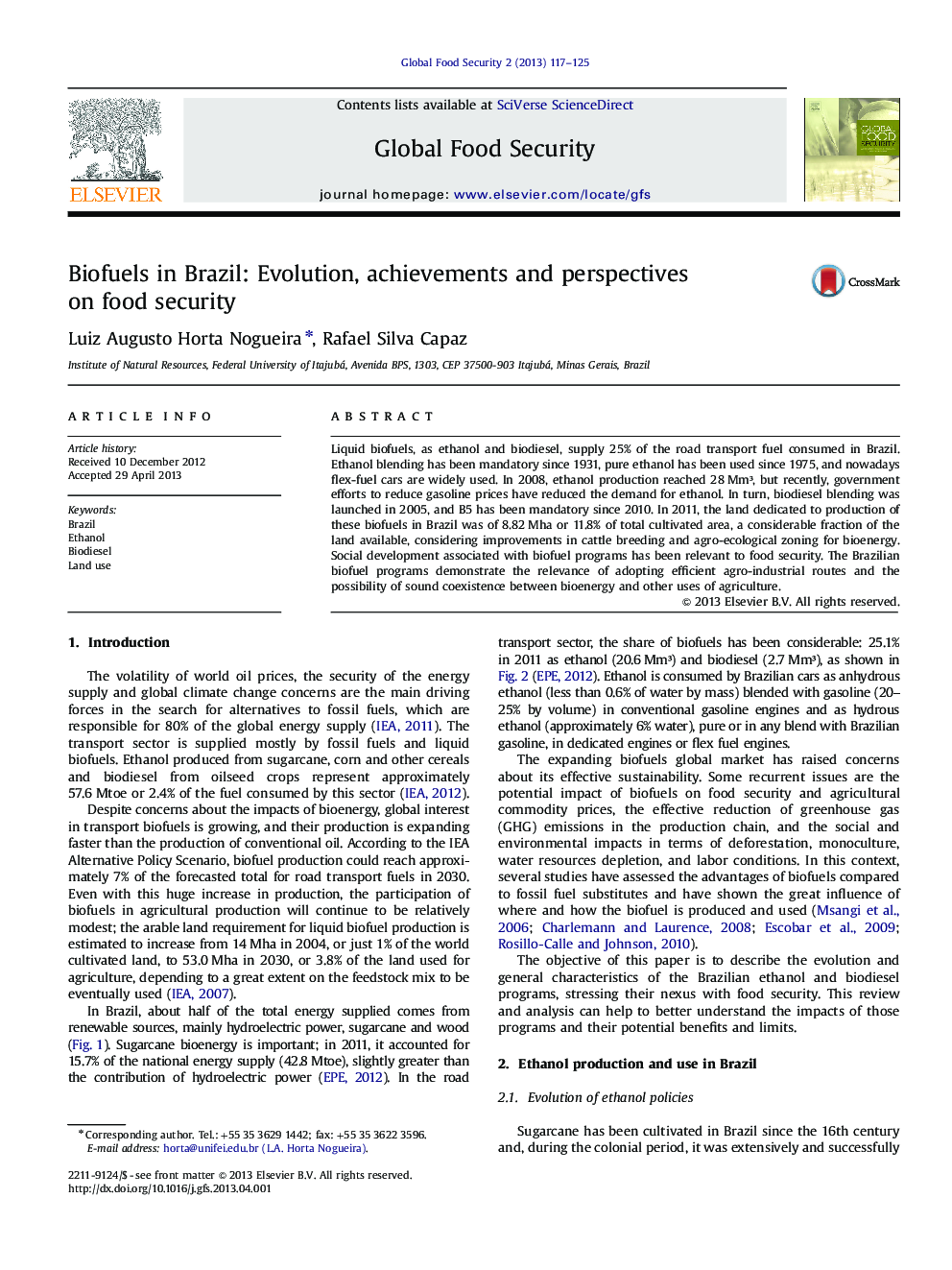| کد مقاله | کد نشریه | سال انتشار | مقاله انگلیسی | نسخه تمام متن |
|---|---|---|---|---|
| 1047609 | 945296 | 2013 | 9 صفحه PDF | دانلود رایگان |
• Biofuels represents about 25% of the Brazilian road transport fuel demand.
• Brazil uses 11.2 Mha to make biofuels (ethanol, biodiesel and wood fuel), 1.3% of national area.
• Ethanol energy yield is greater (2883 ktoe/Mha) than biodiesel (528 ktoe/Mha).
• Brazilian biofuels present synergies to food security without remarkable impact on food production.
Liquid biofuels, as ethanol and biodiesel, supply 25% of the road transport fuel consumed in Brazil. Ethanol blending has been mandatory since 1931, pure ethanol has been used since 1975, and nowadays flex-fuel cars are widely used. In 2008, ethanol production reached 28 Mm³, but recently, government efforts to reduce gasoline prices have reduced the demand for ethanol. In turn, biodiesel blending was launched in 2005, and B5 has been mandatory since 2010. In 2011, the land dedicated to production of these biofuels in Brazil was of 8.82 Mha or 11.8% of total cultivated area, a considerable fraction of the land available, considering improvements in cattle breeding and agro-ecological zoning for bioenergy. Social development associated with biofuel programs has been relevant to food security. The Brazilian biofuel programs demonstrate the relevance of adopting efficient agro-industrial routes and the possibility of sound coexistence between bioenergy and other uses of agriculture.
Journal: Global Food Security - Volume 2, Issue 2, July 2013, Pages 117–125
